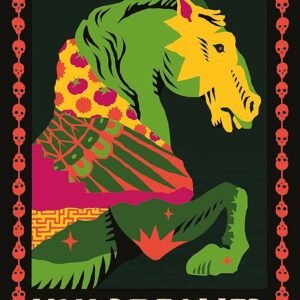James

Percival Everett’s James is a provocative and thought-provoking reimagining of Mark Twain’s Adventures of Huckleberry Finn, offering a fresh perspective by focusing on Jim, the enslaved man who accompanies Huck on his journey. In this retelling, Jim becomes James, a deeply introspective and literate character, presenting a powerful challenge to the traditional narrative. The novel blends the adventure and coming-of-age themes of Twain’s original work with a profound exploration of race, identity, and intellectual autonomy in the antebellum South.
Everett takes significant liberties with the character of Jim, transforming him from the humble, subjugated figure in Twain’s classic into a man who is deeply knowledgeable and thoughtful. James is portrayed as a learned individual who engages with the ideas of Enlightenment philosophers such as Voltaire and John Locke, often conversing with them in his dreams. This philosophical dimension is an essential element of the novel, as it adds layers of intellectual complexity to James, demonstrating that he is much more than just a victim of his circumstances. This intellectual exploration reflects Everett’s aim to critique the assumptions of race and humanity that defined the historical context of slavery. It reimagines the enslaved character as someone capable of deep thought and reason, which counters the prevailing racist stereotypes of the time.
The novel does not shy away from the brutal realities of slavery, capturing the dehumanizing and violent experiences faced by enslaved people in the South. Through James’s eyes, readers gain a visceral understanding of the systemic violence that pervaded every aspect of life for Black individuals during this period. The brutality of the world in which James lives is starkly depicted, but it is also juxtaposed with moments of human dignity and intellectual richness, creating a complex and multidimensional portrayal of the character.
One of the most striking features of James is its dual function as both an adventure story and a philosophical inquiry. While the novel follows a picaresque structure, much like Twain’s original, it also offers deep meditations on themes of freedom, identity, and the struggle for self-determination. Through his philosophical dialogues, James comes to question the very nature of the society he is bound to, and in doing so, Everett invites readers to examine the foundations of American history and its relationship to race and power. The philosophical elements are not merely theoretical but are deeply connected to the emotional and psychological reality of James’s experience as an enslaved man.
The critical reception of James has been overwhelmingly positive. The New York Times praised it as “the rarest of exceptions,” a novel that should be read alongside Twain’s work due to its thought-provoking nature and its challenge to the conventional narrative. Critics have highlighted the novel’s “page-turning excitement” and the way it blends adventure with intellectual inquiry, marking it as a significant and unique contribution to contemporary literature. The Guardian commended Everett’s ability to bring new life to a familiar story while offering a profound philosophical and political critique, praising his exploration of race, freedom, and the complexities of human identity.
In conclusion, James is a masterful reworking of a literary classic that transcends mere retelling. Percival Everett uses the story of Jim’s journey to confront the historical and philosophical questions surrounding slavery and race, while also providing a gripping adventure. Through his rich character development and thought-provoking narrative, Everett challenges readers to reconsider not only the legacy of Huckleberry Finn but also the broader history of American racism and the intellectual potential of those who were oppressed. James is a deeply engaging, intellectually stimulating, and socially important novel, cementing Everett as one of the most significant voices in contemporary literature.



